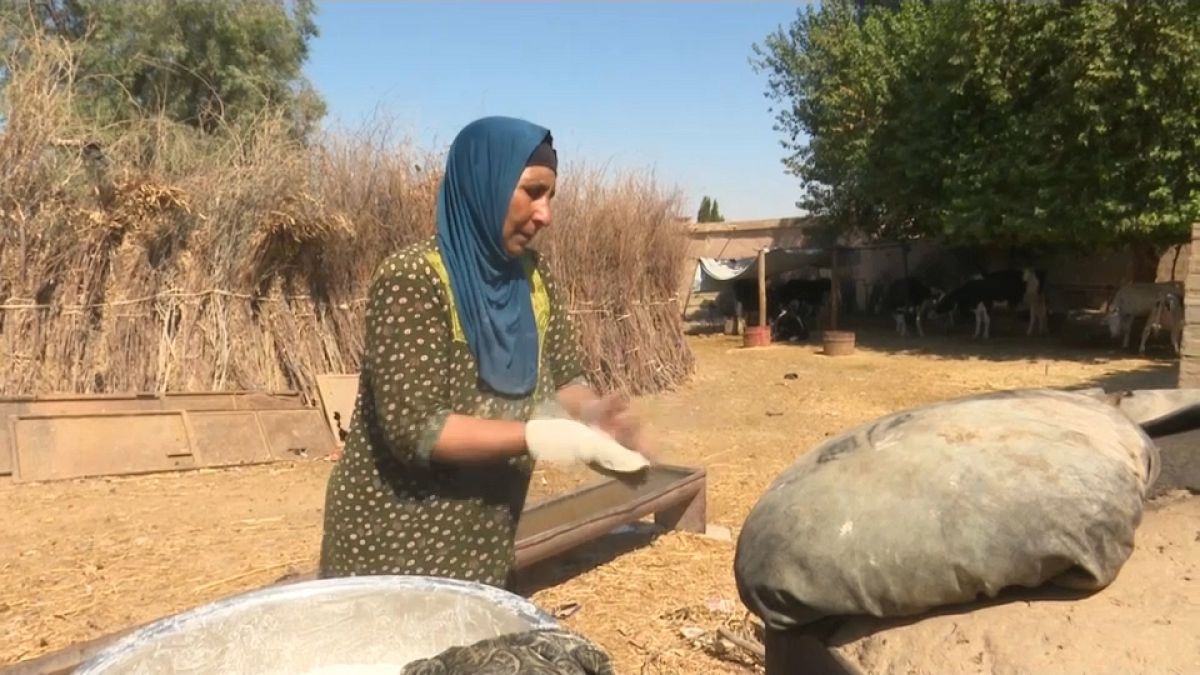Syrians say they are forced to bake bread at home amid a severe wheat crisis.
Qahwa, a mother of eight in eastern Syria, says she has been forced to start baking bread at home to feed her kids due to a severe wheat crisis in the country.
"Bread from the bakeries isn’t enough for us. I’m forced to make dough and bake to feed my kids. We need no less than 50 loaves," she says.
Once a country that took pride in being the only one in the region to grow beyond its domestic needs of wheat, now Syria needs to import it.
Professor Omar Abdul Razzaq, dean of the faculty of agriculture at Euphrates University in Deir Ezzor and Raqqa, said that Syria's northeastern region used to grow between 50 and 60% of Syria’s wheat production, but the region fell out of the state's control during the war.
In 2020, the country only managed to grow nearly 1 million tonnes – a third of its needs today.
The Syrian government's announcement to limit the amount of bread each family can buy and its decision to double prices twice in the past year have led to millions of Syrians falling into poverty.
According to UN reports, about 12.4 million Syrians – over three-quarters of the population – are reportedly food insecure with the country losing nearly a million hectares of arable land since the war.
"We buy the bread from the supplier. Today, a bundle costs 500 liras. There are 14 loaves. That's not enough for the family. Sometimes, for a day or two, we're unable to source bread. The kids go to sleep hungry because we can’t find bread," Jamilla, another Syrian mother, said.
"Where can we get bread from? We get wheat as aid from the Red Crescent, and we've gone back to baking tannour on the electric oven. We wait for hours for electricity to come for two hours, and then we make the dough and bake," she added.
This report was written in collaboration with the media network Egab, which brings you stories by local journalists from across the Middle East and Africa.
Watch the full report in the video player above.
